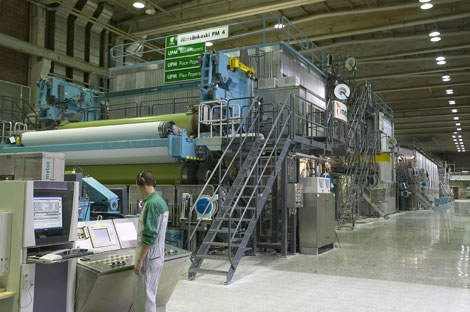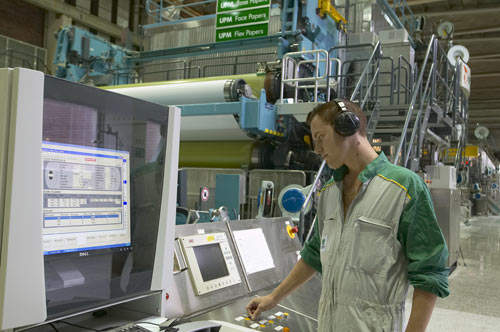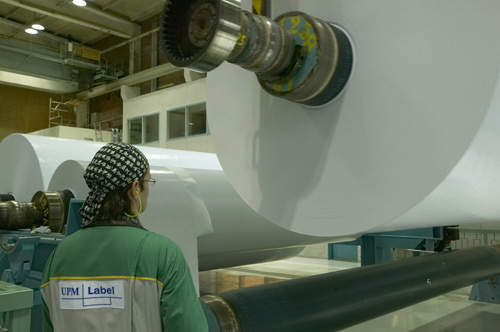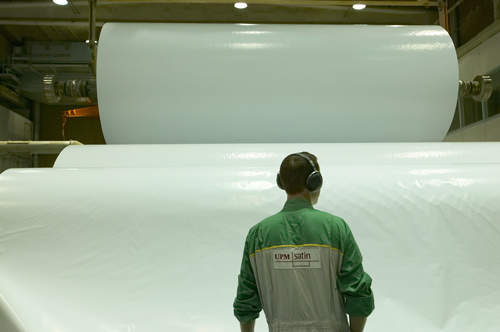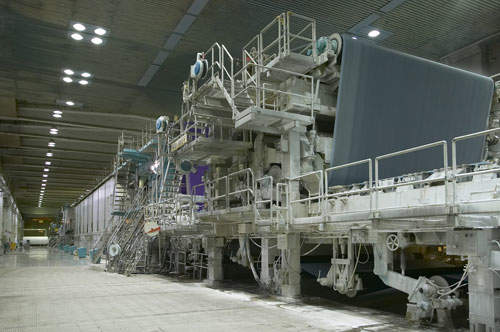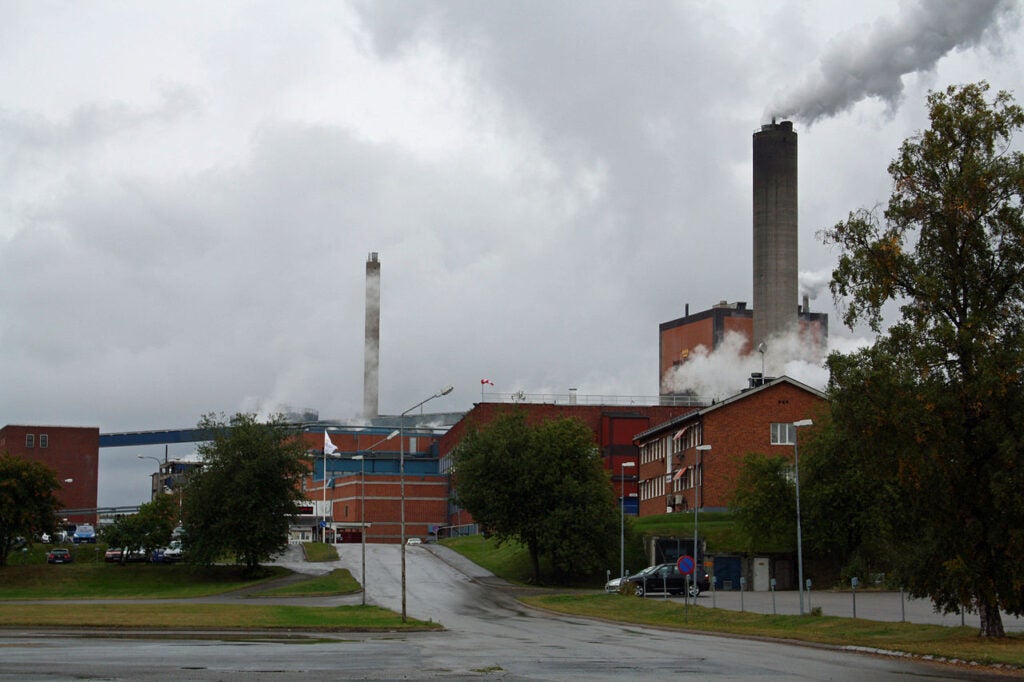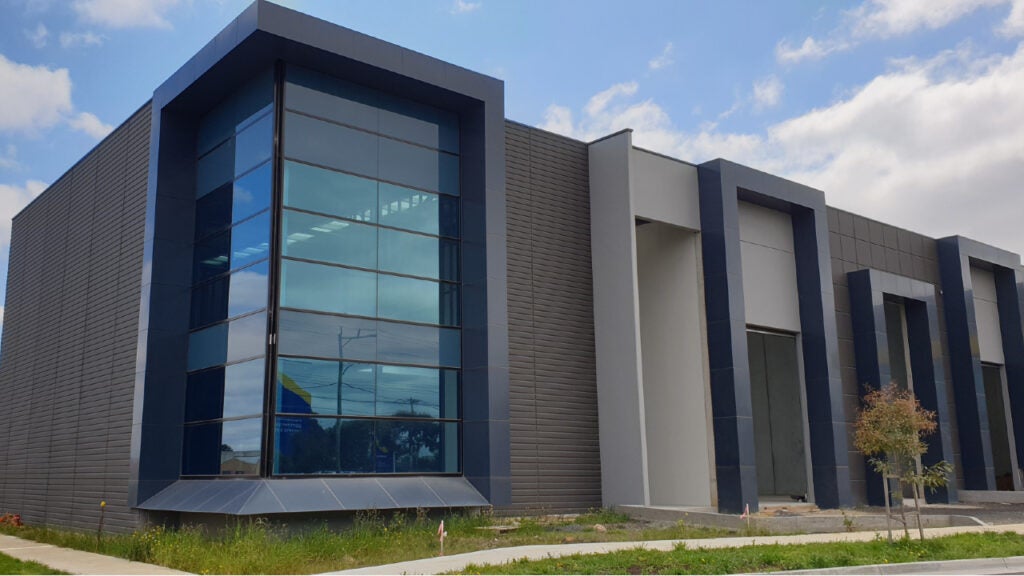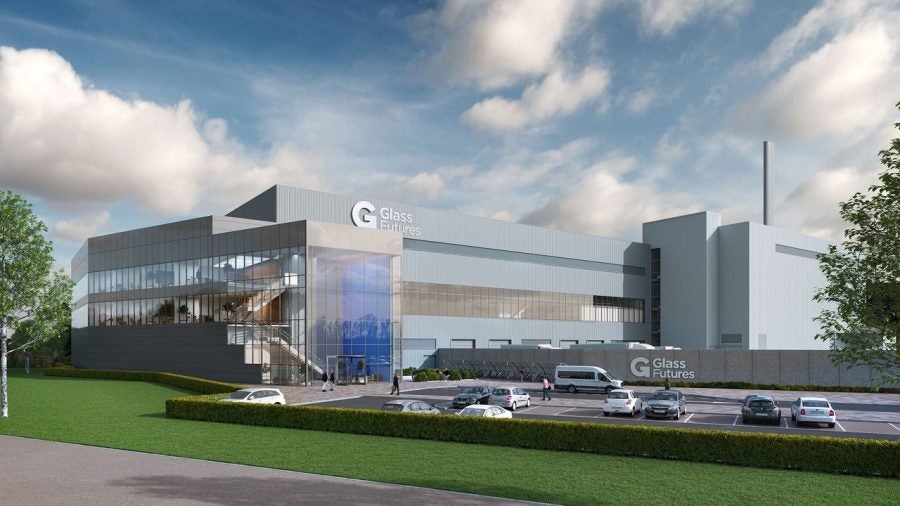UPM is a large paper mill in Jämsänkoski, central Finland, which has an annual production capacity of 870,000t and employs 750 people (23,000 worldwide).
Paper accounts for 70% of UPM’s business, split between magazine papers, newsprint and speciality papers. Wood products, converting and other smaller lines make up the other 30%.
In 2006, UPM started an elaborate programme to restore its profitability. The programme included conversion of the 5.4m-wide PM4 packaging paper machine at Jämsänkoski to produce label papers. The PM4 machine stopped producing coated magazine paper following the completion of the programme. Production from the machine remained unchanged at 120,000t after conversion.
The conversion was done to meet growing demand from the label market, which was increasing at an annual rate of 5%. The programme was expected to save €200m in costs for the company.
The refit started in 2007 and took two months to complete, during which time more than 300t of old parts were stripped from the machine.
Since April 2007, the PM4 has been producing one-side coated face papers, coated release liners and flexible packaging paper.
Along with UPM’s PM3 machine, the two machines produce 260,000t of paper per year.
In January 2010, UPM completed the refurbishment of the effluent treatment at Jämsänkoski. The refurbishment was done to improve the mixing and cooling of the equalisation basin at the paper mill.
Contractors
Metso Paper was contracted to convert the PM4 as part of the conversion programme undertaken in 2006. The total value of the contract was €20m. The contract included installation of a new coating station with a coating colour supply system and air dryers. Metso also improved the wet-end runnability of the machine and installed a new on-line calendar. Existing dry-end machinery of the MP4 was re-used during the conversion.
The contract for refurbishment of the equalisation basin in 2010 was awarded to Finland-based Waterix. The refurbishment helped in addressing various problem areas of the equalisation basin. Impressed by the results obtained from the equipment installed at Jämsänkoski, UPM ordered another 13 AIRIT 700 floating high-speed surface aerators for its Kaipola mill.
Equipment installed
As part of the refurbishment of the equalisation basin, Waterix installed five AIRIT 700 high-speed surface aerators and two COOLIT 16000 floating spray coolers at the Jämsänkoski mill. Existing equipment, which included cooling towers, downward blowing aerators and submersible, mixing aerators were replaced with the new equipment.
The aerators and coolers installed by Waterix cool and aerate the process water in the equalisation basin. This enables the bacteria to eat the nutrients effectively in good conditions. The aerators also act as strong mixers and prevent sludge from settling at the bottom of the equalisation basin. A special feature of the aerators is the intake pipe, which is made of plastic. It helps in increasing the efficiency of oxygen produced.
UPM products
New products coming off the line include UPM’s LabelCoat TT, LabelCoat LC and SwanCoat face and base papers for self-adhesive labels and flexible packaging. These papers have basis weight ranges from 50gsm to 90gsm and are produced at speeds up to 800m per minute.
Extensive testing and fine-tuning ensure the PM4 is running comfortably at full capacity, with no paper curling. Speeds of up to 13,500 sheets per hour have been recorded.
Consumption of spruce trees runs at 950,000m³ per year.
UPM uses only Scandinavian spruce and 90% of the forests it trades with are officially certified, meaning supplies are sustainable. The primary raw materials used at the Jämsänkoski mill include thermomechanical spruce pulp and chemical pulp, which are sourced from various UPM mills.
The mill has a biofuels plant that uses tree stumps, logging chips and waste wood to generate energy and heat for the inhabitants of two nearby towns. The biofuels plant supplies around 60% of the mill’s energy needs.
Jämsänkoski mill has been granted the ISO 9001 Quality System Certificate, the ISO 14001 Environmental Management Certificate and the OHSAS 18001 Occupational Health and Safety Certificate.

